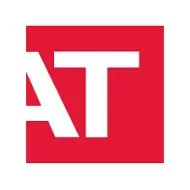The Occupational Safety and Health Administration (OSHA) published this morning its emergency temporary standard (ETS) requiring COVID-19 vaccination or weekly COVID-19 testing for employees of businesses that have at least 100 employees (i.e., covered employers).
The standard requires covered employers to develop, implement and enforce a policy requiring its employees to either (1) become fully vaccinated against COVID-19, or (2) undergo COVID-19 testing on at least a weekly basis and wear a face covering when at work.
The ETS requires covered employers to develop and implement an ETS-compliant vaccination and testing policy no later than Dec. 5, 2021, but covered employers have until Jan. 4, 2022, to begin requiring weekly testing for unvaccinated employees. Thus, covered employers have two months to prepare for compliance with COVID-19 testing requirements, but should immediately begin:
- developing an ETS-compliant vaccination and testing policy, which must be implemented in approximately one month (on or before Dec. 5, 2021); and
- determining which employees covered by the ETS are unvaccinated so that the covered employer will know who must undergo weekly COVID-19 testing as of Jan. 4, 2022.
While further guidance is expected to be published to address unanswered questions regarding the ETS, the following is a summary of significant, known aspects.
Which Businesses are Covered by the ETS?
- The ETS applies to all businesses that: (1) have 100 or more employees at any time from Nov. 5, 2021, through expiration of the ETS, including full-time, part-time, temporary and seasonal employees; and (2) are subject to OSHA's jurisdiction.
- An employing entity with multiple worksites in the United States must count together all of its employees-regardless of which of those worksites serves as the employee's base or primary location.
- It is not clear whether entities in the same corporate control group must aggregate their employees for purposes of determining ETS coverage.
- Staffing company employees are considered employees of the staffing company only, and are not counted toward the 100-employee threshold of the host company.
- Workplaces covered by Executive Order 14042 are not subject to the ETS.
- Health care workplaces subject to the requirements of OSHA's June 2021 ETS for the health care industry are not subject to this ETS.
Requirements of a Covered Employer's Policy
- Covered employers are required to develop, implement and enforce a written policy; covered employers may choose whether this is a mandatory vaccination policy or a "vax-or-test" policy.
- A mandatory vaccination policy is one that requires every employee to be fully vaccinated, other than those employees who fall into one of three categories: those for whom a vaccine is medically contraindicated, those for whom medical necessity requires a delay in vaccination, or those legally entitled to a reasonable accommodation based on a disability or sincerely held religious beliefs, practices or observances that conflict with the vaccination requirement.
- A "vax-or-test" policy allows employees to choose whether to become fully vaccinated or to produce a negative COVID-19 test at least weekly (or, for those employees who do not report to the workplace on a regular basis, within seven days prior to entering the workplace each time they enter the workplace).
- All policies must include information relating to, among other things: information about vaccine efficacy, safety and the benefits of being vaccinated; COVID-19 testing and face covering requirements; applicable exclusions from the policy; determining an employee's vaccination status and how this information will be collected; paid sick time and sick leave for vaccination purposes; notification of positive COVID-19 tests and removal of COVID-19 positive employees from the workplace; and disciplinary action for employees who do not abide by the policy.
Which Employees of a Covered Employer are Subject to the ETS?
- The requirements of the ETS do not cover: (1) employees who work from home and never enter the workplace; or (2) employees who work exclusively outdoors. All other U.S. employees of a covered employer are subject to the requirements of their employer's policy.
Additional Responsibilities of a Covered Employer
- Covered employers must determine and maintain records of each covered employee's vaccination status and COVID-19 test results. The deadline for determining employees' vaccination status is Dec. 5, 2021.
- Covered employers must immediately remove from the workplace any employee who provides notice of a positive COVID-19 test or is diagnosed with COVID-19.
- Covered employers must provide paid leave (up to 4 hours) for employees to receive each vaccination dose, and must also provide "reasonable" paid sick leave for employees to recover from any potential side effects from vaccination. Note: State law may require paid leave that is greater than the paid leave required by the ETS.
- Covered employers must report to OSHA work-related employee COVID-19 fatalities and inpatient hospitalizations relating to COVID-19, and must comply with certain recordkeeping requirements.
Responsibilities of Employees Covered by the ETS
- Covered employees must promptly notify their employer upon receiving a positive COVID-19 test or a diagnosis of having COVID-19, and such employees must be immediately removed from the workplace.
- Covered employees who are not fully vaccinated must wear a mask when working (1) indoors or (2) in an enclosed space with another person.
- Covered employees who do not become fully vaccinated against COVID-19 by Jan. 4, 2022, must submit to weekly COVID-19 testing.
Who Covers the Cost of COVID-19 Testing under the ETS?
- While the ETS itself does not require a covered employer to pay for COVID-19 testing that is required by the ETS, other laws, regulations and agreements may still require employers to bear such costs.
- For example, some state laws may require an employer to pay for the cost of COVID-19 testing even though the ETS itself does not impose such a requirement.
- Additionally, questions remain regarding whether Equal Employment Opportunity Commission (EEOC) guidance requiring employers to pay for "medical examinations" (under the Americans with Disabilities Act) may result in employers being required to pay for COVID-19 testing under the ETS.
Interaction Between the ETS and Other Vaccination Laws
- OSHA has advised that the ETS is intended to preempt "any State or local requirements that ban or limit an employer's authority to require vaccination, face covering, or testing."
- To avoid confusion, the White House has advised that employees working in workplaces that are covered by Executive Order 14042, the health care ETS published in June, or the rule published by the Centers for Medicare & Medicaid Services (applicable to workers at health care facilities participating in Medicare or Medicaid) will not be subject to the ETS.
- The White House has also advised that the deadline for compliance with the vaccination requirements of Executive Order 14042 will be extended to Jan. 4, 2022, to align with the deadline for requiring unvaccinated employees to undergo weekly testing under the ETS.
Legal challenges to the ETS are expected in the coming days and weeks, which could impact the enforceability of the provisions of the ETS in both the short and long term.
Armstrong Teasdale's Employment and Labor attorneys are actively monitoring for updates regarding this ETS and other emerging COVID-19 issues impacting employers. If you have any questions, please contact your regular Armstrong Teasdale attorney or one of the authors listed below.
The content of this article is intended to provide a general guide to the subject matter. Specialist advice should be sought about your specific circumstances.





